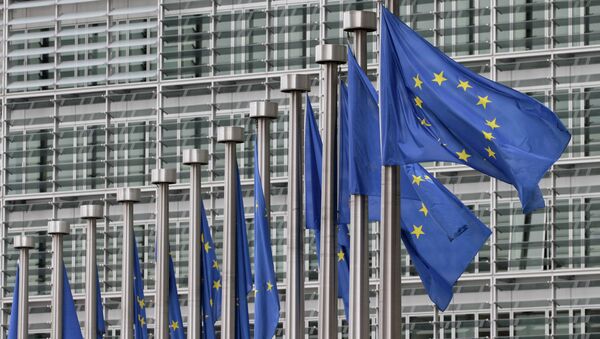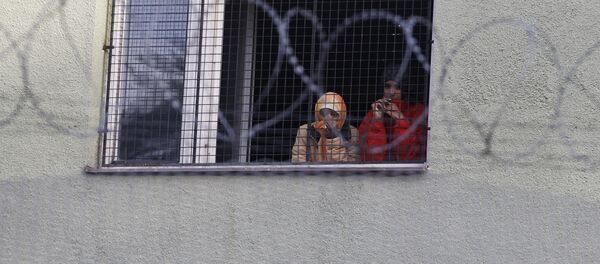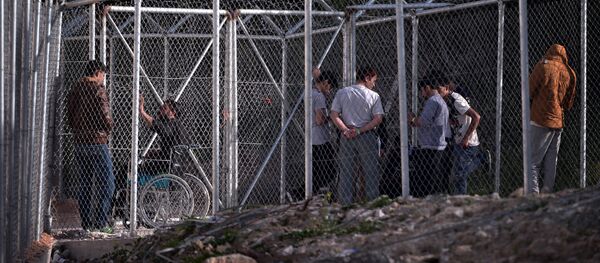Sputnik: In the article ‘What Multiculturalism Hides' (Co skrývá multikulturalismus) for the Gatestone Institute, you provide arguments that prove the danger of migration for the population of European countries, primarily from a cultural point of view. The Czech Republic already has experience of receiving a large group of migrants — these are Vietnamese, who, as observations show, have not had a destructive impact on the culture and society of the country. Couldn't the same model be implemented with a small group of migrants from Africa and the Middle East?
It functions independently of state institutions, on whose territory they have come. The tactics of creating a parallel society vary, depending on the impact of the Islamic population on the citizens of a particular country. The goal is to create their own power structures, as well as legal, educational and social structures that would not be loyal to the legal structure of the host country and would not be compatible with its values.
Migrants from Vietnam have no such ambitions, even in cases when they come to the country in great numbers. The last part of your question is a bit misleading. If it were really about small groups of migrants from Africa and the Middle East, then there would be no problem. Tens of thousands of Muslims live in the Czech Republic, and everyone who wants to enrich themselves with their culture has such an opportunity.
The risk is mass migration, which is prompted by population growth in Africa and the Middle East, from which European institutions either cannot or do not want to defend themselves.
READ MORE: Czech PM Calls November 25 'Mourning Day' for EU As Brexit Deal Endorsed
Sputnik: You argue that if the EU continues to put pressure on the Czech Republic on the migration issue, then membership in the organization has not justified itself. Can the potential economic damage from receiving dozens of migrants be comparable to all the benefits provided by the EU? Or is it just a matter of principle?
Jan Keller: The economic benefits that the Czech Republic has from EU membership are relative. As the French economist Thomas Piketty recently noted, of all the countries of the Visegrad Group, the Czech Republic has the least benefit from EU membership. At the same time, the Czech Republic gives most of its GDP to big investors from countries of former Western Europe.
Again, I have remarks as to the last sentence of your question. I do not like it when you say that something is a matter of principle. To achieve something from principle is even more important than to count the economic benefits and losses. In this case, the key principle is the loss of the sovereignty of the Czech Republic and the prospect of the survival of the Czech culture.
Sputnik: In an interview with Literarky.cz, you answered a question about Russian-European relations as follows: ‘Anti-Russian sanctions lead nowhere. Therefore, I am convinced that they will not be cancelled. It is this logic that is just a reflection of those higher European values'. Could you please explain why the sanctions will not be lifted if their inefficiency is so obvious; and what is the logic of European values?
Jan Keller: As a sociologist, all my life, among other things, I have been studying the logic of the functioning of organisations and the dysfunction of bureaucracy. The European Union today is showing all the signs of a so-called blocked organization. These organizations work in such a way that if the result of their activity is undesirable, they do everything to increase this undesirable effect. The feedback [mechanism] simply does not work in them, by which one could [otherwise] correct one's work when the results from the point of view of the goal are undesirable.
READ MORE: Czech Cabinet Agrees $13Mln in Funding for Turkey Under EU Migrant Deal
If we look at the European Union's policy papers over the past 20 years, we see that regularly-stated goals are not regularly achieved. This is ‘solved' in a way that the achievement of goals is postponed for the next 5 or 10 years. And after this period of time, the situation repeats. The EU, instead of correcting itself with regard to its own mistakes, continues to pursue what is working badly.
For example, the value of ‘diversity' is manifested in the fact that everyone has complete freedom to do voluntarily what they would otherwise have to be ordered [to do]. I emphasize that I am not an opponent of the European Union. However, its current functioning leads me to great confusion and gives me a feeling of regret because of a sinfully missed opportunity.
Views and opinions, expressed in the article are those of Jan Keller and do not necessarily reflect those of Sputnik.




